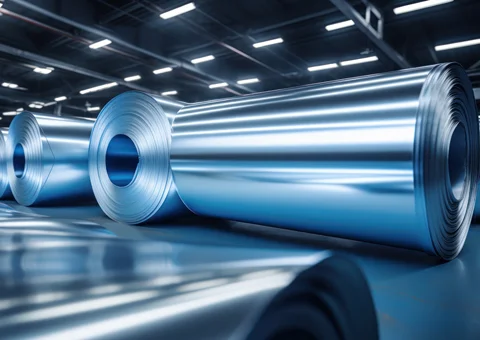Weak sentiment among market players led domestic steel prices to track downward in May under the pressure of excess supply. On May 30, Mysteel assessed the country's national steel price at Yuan 3,387/tonne ($470.5/t) including the 13% VAT, down by 2.8% from the end of April.
Mysteel's survey showed that domestic steelmakers kept producing vigorously last month, with the daily hot metal output among the 247 blast furnace steel mills Mysteel monitors nationwide averaging 2.44 million tonnes/day, up by 1.4% on month and higher by 4% compared with May last year.
"Production among BF steelmakers may retreat in June, but the decrease will be marginal, considering that most mills can still enjoy positive margins," Wang believes. "The decline in the prices of raw materials has eased the operating costs incurred by the mills," he explained.
Daily production of hot metal among the 247 mills this month may shrink by just 30,000 t/d from the May level, Wang estimates.
On the other hand, steel demand is seen waning in both the domestic and overseas markets this month, Wang warned.
"The upcoming rainy season may impede construction progress on building sites throughout the country, reducing domestic demand for construction steel products," he noted.
"Steel consumption in the manufacturing sector may show some resilience in June as traders rush to export goods during the temporary suspension of 'reciprocal tariffs' between China and the US," Wang believes. "However, anti-dumping measures adopted by many other countries against Chinese steel will inevitably lead to a decline in overall steel exports among domestic manufacturers," he added.
Given the gradually widening imbalance between supply and demand, the steady decrease in China's total steel stocks that had been observed in the market since March may stop this month and inventories may start to accumulate in late June, Wang suggests.
In fact, the stocks of some steel products used in manufacturing have been rising for several weeks due to the waning export demand, Mysteel's survey showed. By the end of May, the total inventories of cold rolled coils held by steelmakers and trading houses across the 35 cities under Mysteel's monitoring had increased by 6.3% on month to reach 1.7 million tonnes.
The mounting inventories may darken the mood of the domestic steel market, triggering pessimism that would exert additional downward pressure on steel prices, Wang cautioned.
In the meantime, market players can hardly be optimistic that government policy measures are about to provide salvation, he pointed out. "Although the central government held several press conferences in May to introduce a series of economic incentive policies to boost consumer and market confidence, it is unlikely that the policies will be implemented in the short term," he explained.
More importantly, the absence of government-mandated restrictions on steel output is likely to intensify the supply glut, trapping steel prices in an unrelenting downward tack with no clear bottom in sight, according to Wang.
"Only when sustained price declines push most steelmakers into deep loss territory will the mills start to cut output voluntarily, allowing market balance to be restored," Wang believes.

